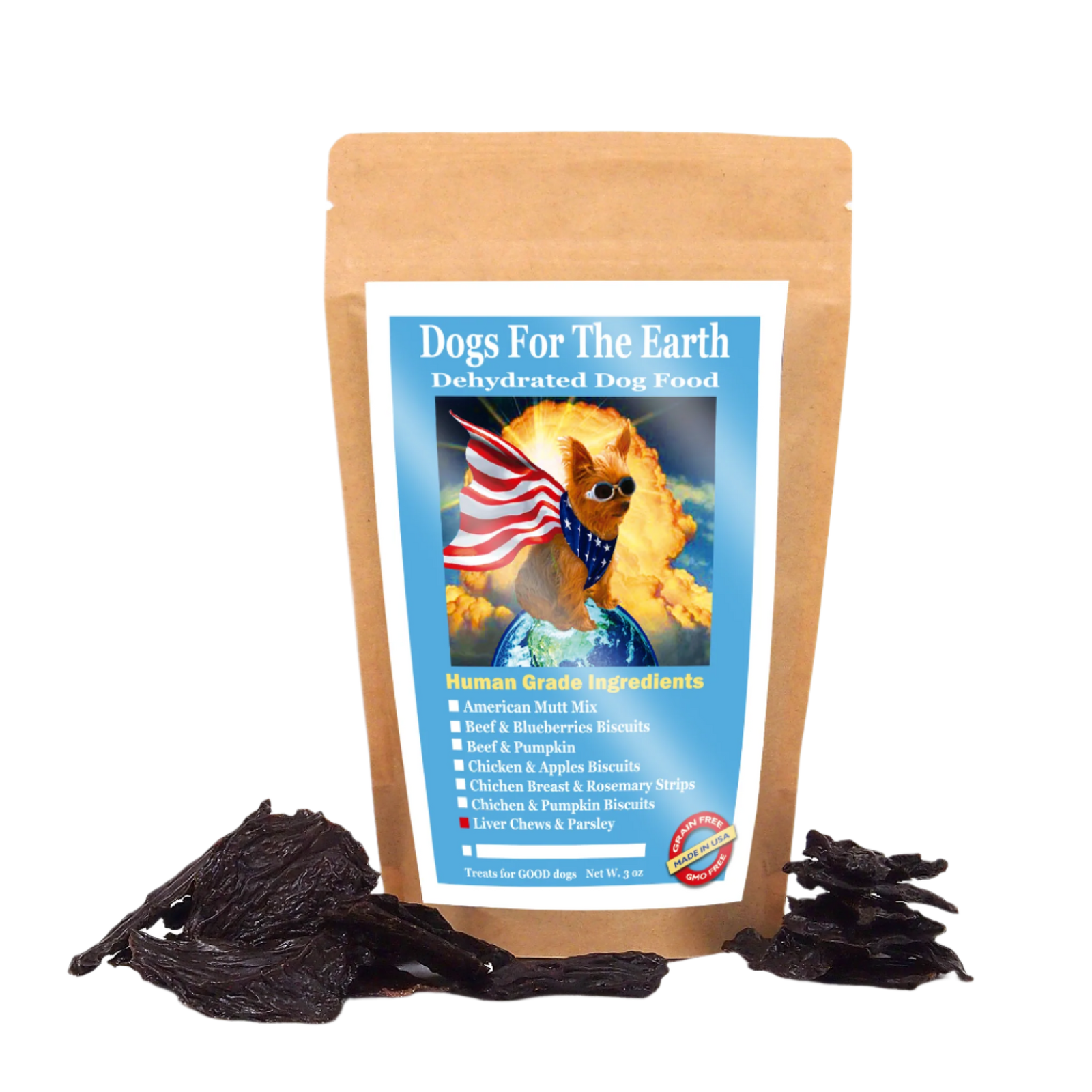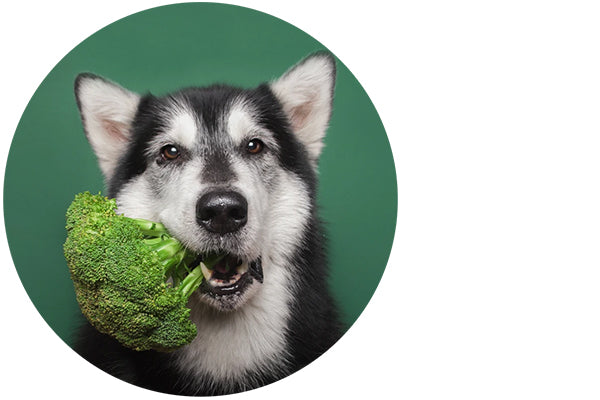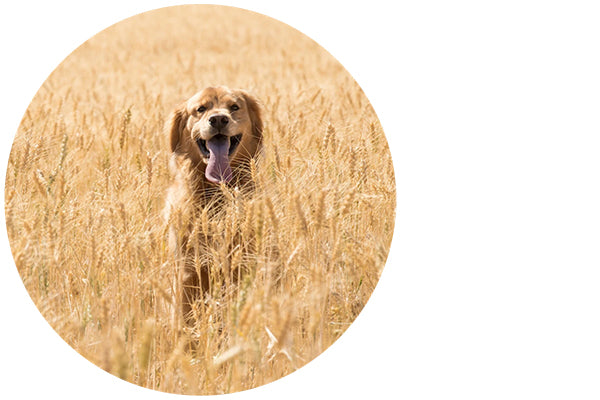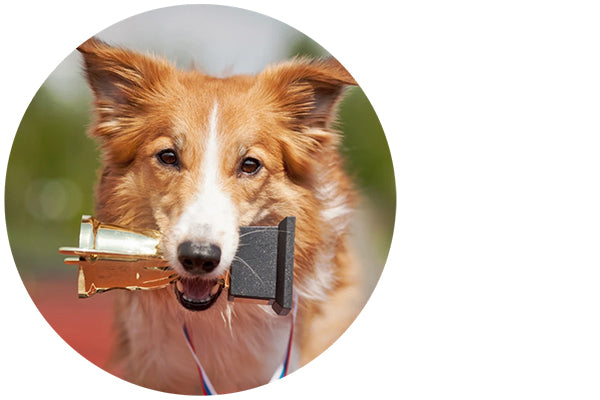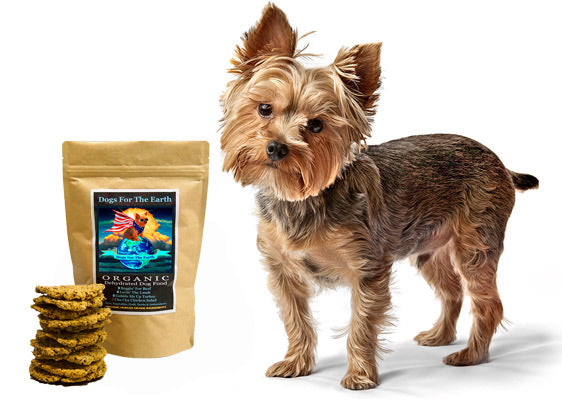
Itchy skin is either caused from external environmental factors or internal nutritional & dietary factors (sometimes both!).
If your dog has itchy skin year round, regardless of the weather or pollen count, chances are the problem is coming from food.
Itchy skin, chewing on feet, scratching ears, dull coats are often symptoms (usually, actually) of yeast overgrowth. Often symptoms associated with yeast overgrowth are treated as isolated issues not related to nutrition. This usually results in temporary relief with aggravations coming back with a vengeance. (Symptom diagram & natural relief, here)
You have the power to stop the viscous cycle of scratching dogs with yeast issues.
Our “Chelsea’s Blend” specifically addresses yeast and itchy skin problems. It’s not a magic pill. It’s a streamlined food with zero unnecessary ingredients. It’s a 100% organic, low glycemic blend of essential nutrition that will help balance the flora in your dog’s system. So relief comes gradually and naturally.
Besides serving food that helps cure your dog’s itchy symptoms there’s more you can do.
Yeast is a form of fungi.
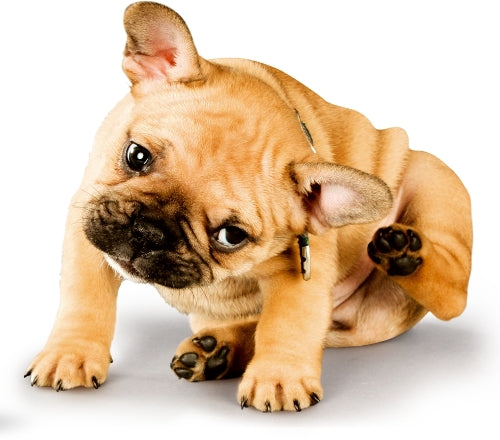
Both people and dogs have a normal amount of healthy yeast in the body. The healthy levels of flora are due to a balanced immune system.
An underactive immune system can lead to yeast overgrowth. Allergies can lead to an overactive immune system, which can also cause problems with yeast. Balance is the key.
When a veterinarian prescribes steroids for a dog with allergies, it shuts off the immune system, which can improve the symptoms, but does not fix the cause of the allergy. When the immune system is shut down, it cannot do its job of balancing normal levels, so your dog can end up with yeast overgrowth.
When conventional vets see dogs with skin problems, often they prescribe antibiotics. Antibiotics kill ALL bacteria, good and bad, which then destroys the healthy yeast levels, so these drugs will often make it worse.
So dogs with an underactive immune system can end up with a yeast infection, as well as dogs with an overactive immune system, or allergies.
Diagnosing a yeast infection can be done under a microscope or by doing a skin culture.
More often though, you'll be able to tell if your dog has a yeast infection just by her smell or their non-stop itching. Yeast has a distinctive smell. It can smell like moldy bread, cheese or corn chips. I call it “tortilla feet”.
Healthy dogs don't have a 'doggy odor.' So if your pup has stinky paws or ears, chances are there’s a yeast overgrowth.
Yeasty dogs itch, so therefore, they scratch. A lot of butt scooting can also be a clue.
If your dog is spending a lot of time digging at herself, whether it's a bacterial or yeast infection, she needs your help.
Nutrition
It's rare that a dog has yeast in just one spot, for example, all four paws, both ears or if his body is yeasty, then you must take a look at what you are feeding them.
Good nutrition equals good health. What you feed your dog will either help balance the immune system or it’s going to help promote yeast overgrowth.....you decide.
Yeast feeds on sugars. Carbohydrates and starches break down into sugar, so if the immune system is off balance and there is too much sugar in the diet, then it only makes sense to rid sugars from the diet.
People think of sugar as the white stuff we put in coffee, but there are also many natural sugars in foods. For instance, honey can be beneficial for dogs in many instances, but it has hidden sugars which provides food for yeast. Also potatoes, which are a form of carbohydrate and starch, also provides food for yeast.
If your dog has a major yeast problem, you must eliminate these things from their diet. Feed low-glycemic veggies. No potatoes for now. Corn, wheat and rice, which they don’t need anyway...these are just fillers to keep food cost down in commercially processed foods – all the carbohydrates need to go away in a sugar-free diet. This is really an important step. You have to balance their levels so they remain normal.
Some people think of special blend food as a luxury dog food or gourmet dog food but we believe organic dog food is sensible food. Imagine your dog’s comfort and your pride when your healthy dog stops scratching.
It takes courage and determination to follow a strict diet and great big begging eyes will be hard to resist. But the payoff of a happy, healthy dog is rewarding and filled with love. One day soon, when you look at your dog and realize the scratching has stopped, the discomfort is gone you’ll know in your heart the tough times are behind you.
Here's more information about Yeast & Itchy Dogs.
Remember, nutrition is the key but there are some things you can do while you are balancing your dog’s system. Please see your holistic veterinarian for natural ear cleaning solutions & shampoos to remove surface yeast growth. It will aid in a speedy recovery.

Subscribe to our newsletter at the bottom of the page for important information and special coupons or offers!


